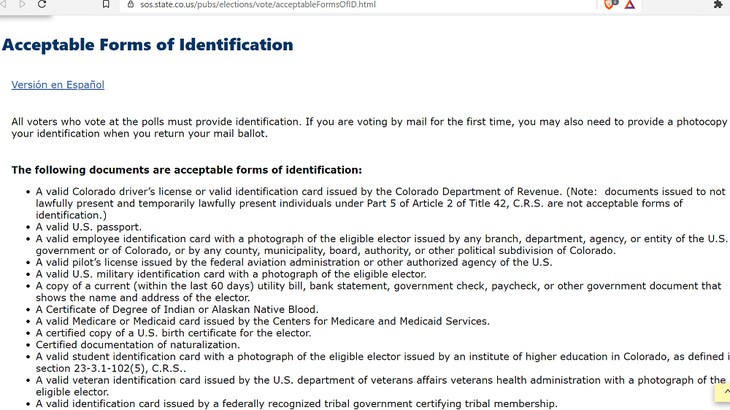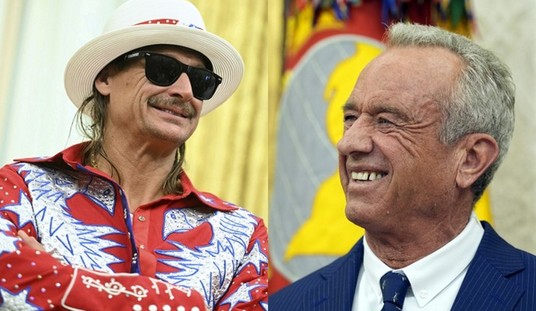Apparently, Major League Baseball has found a new home for the 2021 All-Star Game: Coors Field in Colorado. ESPN broke the story first:
Coors Field is expected to host this year's MLB All-Star Game, sources told @Buster_ESPN on Monday.
MLB opted to move the game out of Atlanta due to voting laws passed in Georgia last month. https://t.co/bqDCS8mtOT
— SportsCenter (@SportsCenter) April 6, 2021
The super woke sports outlet had quite the explanation of the law that Major League Baseball was so offended by that it had to move the All-Star Game:
The new voting law came in the wake of the first Democratic victories in presidential and Senate elections in Georgia in a generation, which triggered repeated unproven assertions by former President Donald Trump that the state’s election was fraudulent. Supporters of the new law have said it merely ensures election integrity and stamps out potential fraud, while critics have described it as a voter suppression tactic that would make it more difficult for minorities, particularly people of color, to vote, citing how it reduces ballot access in urban communities that lean Democratic.
The move was quickly confirmed by the Associated Press, which — entirely coincidentally, I’m sure — has a very similar explanation about how this episode came about:
MLB pulled the July 13 game from Truist Park in Atlanta in response to Georgia voting rules that Republican Gov. Brian Kemp quickly signed into law March 25. Critics, including the CEOs of Atlanta-based Delta Air Lines and Coca-Cola, have condemned the changes as being too restrictive.
The Georgia law includes new limits on voting by mail and greater legislative control over how elections are run, amid a push in Republican-led states to reduce voting options after former president Donald Trump made baseless claims of widespread fraud in last year’s election.
I mean, they don’t even try to hide the propaganda anymore.
So what are these “new limits on voting by mail”?
First, the time frame voters have to request an absentee ballot was shortened. Voters now must wait until 78 days prior to the election to request an absentee ballot, and their request must be received no later than 11 days prior to the election. On the application, the voter must provide “his or her name, date of birth, address as registered, address where the elector wishes the ballot to be mailed, and the number of his or her Georgia driver’s license or identification card issued,” but if they don’t have a driver’s license they must “affirm” that fact and attach a copy of their ID, either electronically or as a photocopy (depending on how they’re making the application).
And, as our Sister Toldjah covered, when the voter returns their absentee ballot they must print the number of his or her Georgia driver’s license number or identification card and their date of birth on the outer envelope. If they don’t have a driver’s license, ID card, or Social Security number they can just affirm that fact and enclose a photocopy of another form of ID in the envelope.
The New York Times found all of this to be a terrible imposition.
Previously, Georgia law required voters to simply sign their absentee ballot applications. Now they will have to provide the number from a driver’s license or an equivalent state-issued identification. This is virtually certain to limit access to absentee voting.
The law also creates pitfalls for voters: If they fail to follow all the new steps, like printing a date of birth or in some cases including partial Social Security numbers, their ballots could be tossed out.
Stringent voter-ID laws in other states have depressed voting mostly among people of color.
Georgia already required voter ID at the polls, but each county provides free voter ID cards to its residents and allows voters to use expired driver’s licenses.
Joe Biden calls this law “Jim Crow on steroids,” saying it’s “a blatant attack on the Constitution.”
Surely Colorado must make it easier for people of color to exercise their right to vote, right?
Wrong.
Colorado also requires that a voter provide identification to vote — including in some instances of voting by mail. When voting by mail for the first time, they may have to provide a photocopy of their identification with their return ballot, which seems extremely burdensome for people who don’t have a scanner or a printer at home.
In case the screenshot isn’t readable, here are the documents the Colorado Secretary of State lists as acceptable forms of identification:
- A valid Colorado driver’s license or valid identification card issued by the Colorado Department of Revenue. (Note: documents issued to not lawfully present and temporarily lawfully present individuals under Part 5 of Article 2 of Title 42, C.R.S. are not acceptable forms of identification.)
- A valid U.S. passport.
- A valid employee identification card with a photograph of the eligible elector issued by any branch, department, agency, or entity of the U.S. government or of Colorado, or by any county, municipality, board, authority, or other political subdivision of Colorado.
- A valid pilot’s license issued by the federal aviation administration or other authorized agency of the U.S.
- A valid U.S. military identification card with a photograph of the eligible elector.
- A copy of a current (within the last 60 days) utility bill, bank statement, government check, paycheck, or other government document that shows the name and address of the elector.
- A Certificate of Degree of Indian or Alaskan Native Blood.
- A valid Medicare or Medicaid card issued by the Centers for Medicare and Medicaid Services.
- A certified copy of a U.S. birth certificate for the elector.
- Certified documentation of naturalization.
- A valid student identification card with a photograph of the eligible elector issued by an institute of higher education in Colorado, as defined in section 23-3.1-102(5), C.R.S..
- A valid veteran identification card issued by the U.S. department of veterans affairs veterans health administration with a photograph of the eligible elector.
- A valid identification card issued by a federally recognized tribal government certifying tribal membership.
But, Colorado won’t accept “any document produced by Colorado’s statewide voter registration system” as proof of identification, and it won’t accept expired driver’s licenses.
Of course, neither the ESPN or AP article mentioned this fact. Maybe they think Colorado’s law doesn’t suppress minority votes? If that’s the case, they’ve opened a whole new can of worms.
















Join the conversation as a VIP Member